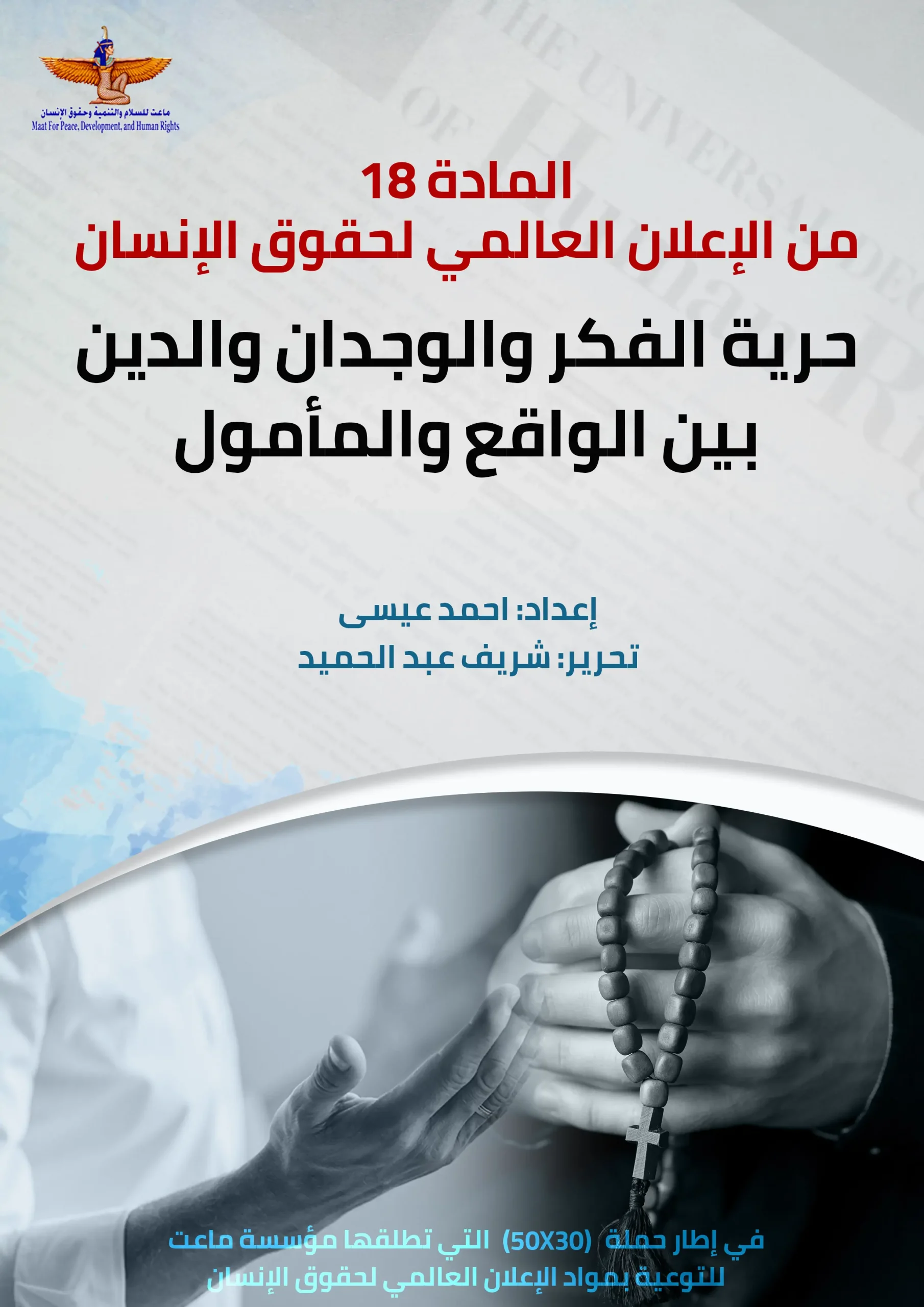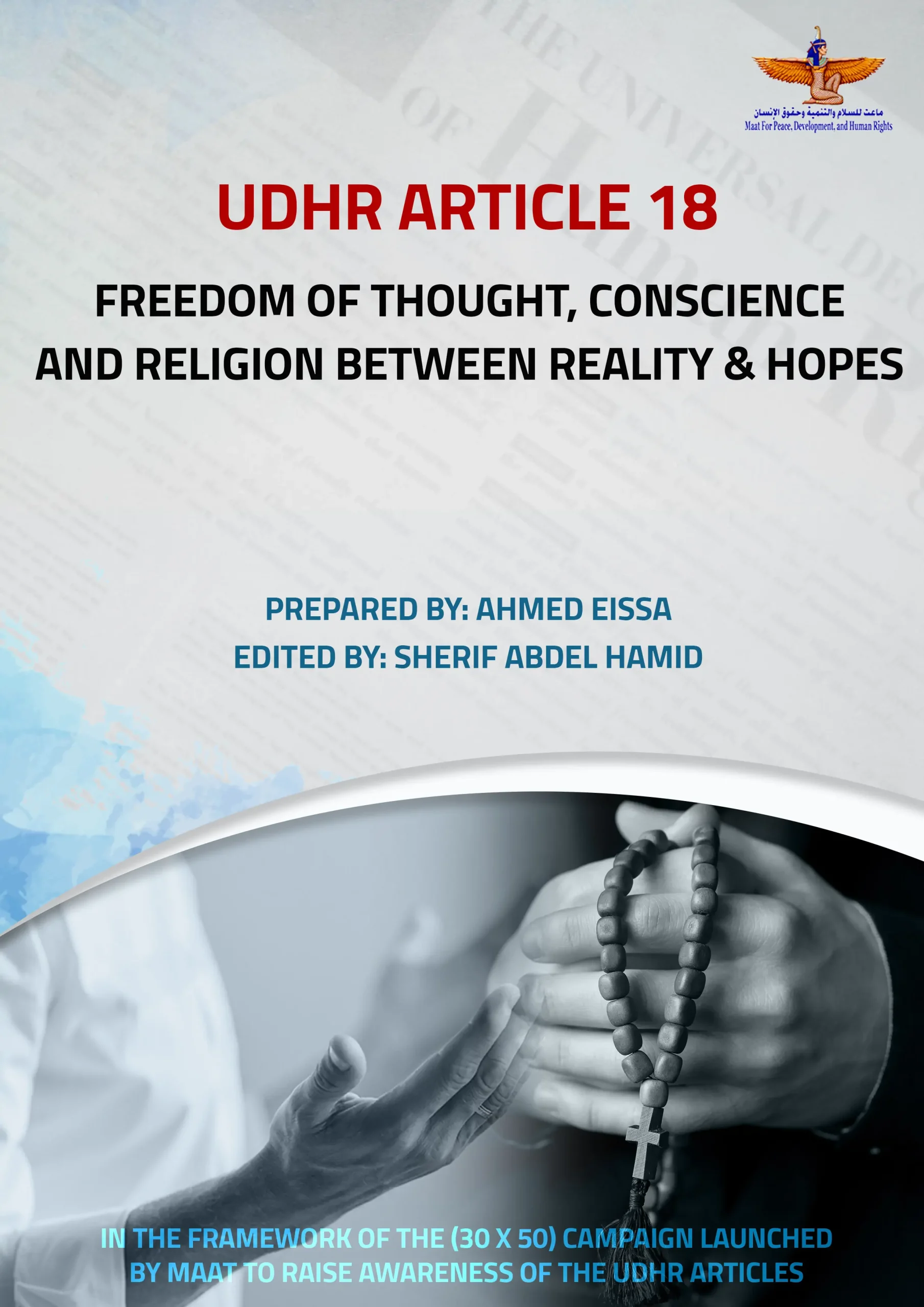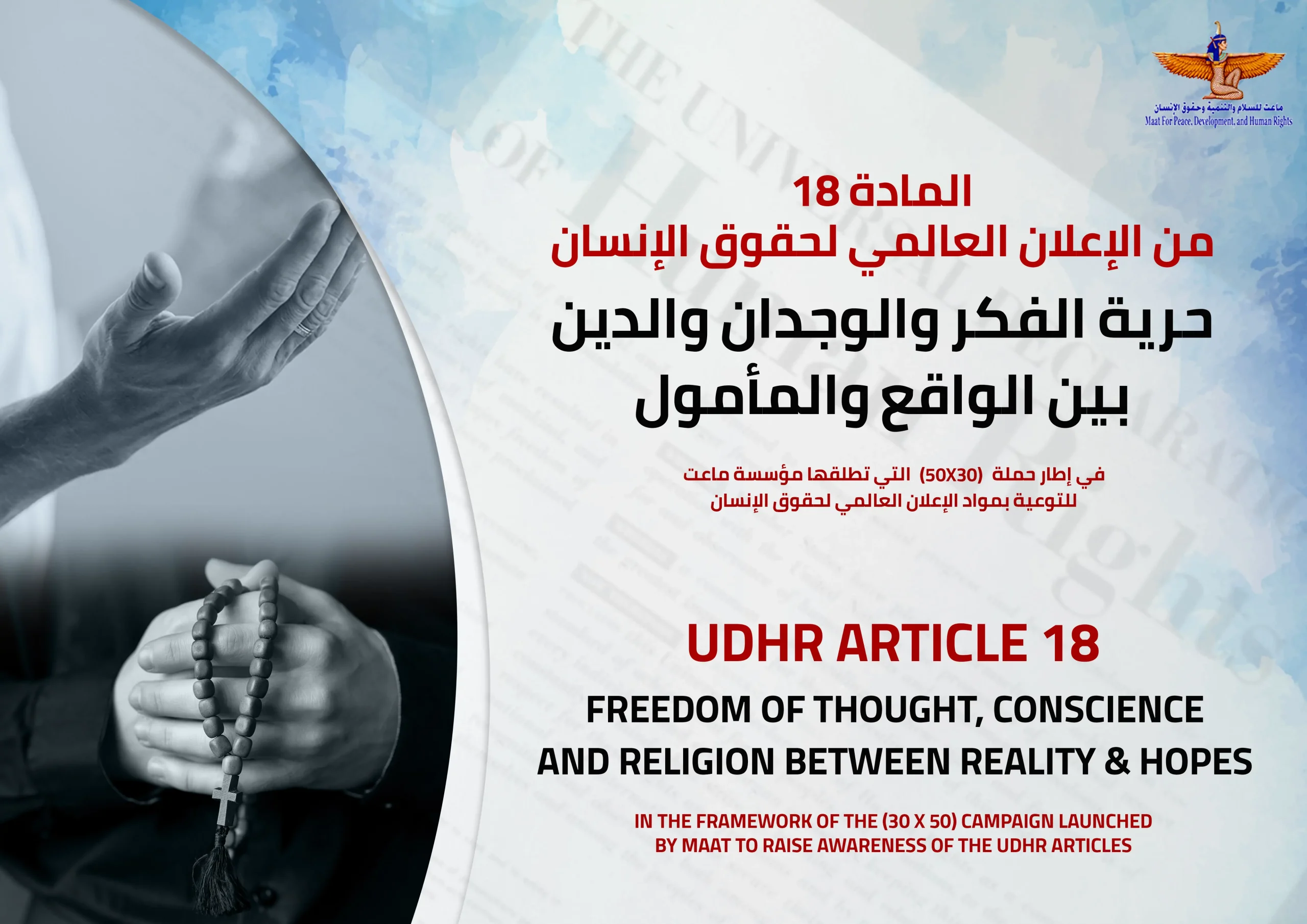Introduction:
The right to freedom of thought, conscience, and religion is one of the Highest civil rights guaranteed by international human rights conventions. However, it was not until 1948 that this right was adopted and explicitly recognized as a basic human. Article 18 of the UDHR (UDHR) guaranteed the right to freedom of thought, conscience and religion for all individuals; thus, it has represented an important turning point and an important landmark in the history of freedom of thought, religion and belief. In fact, the integration of Article 18 into the UDHR has been influenced by many factors, topped by religious persecution practiced by the Nazis against religious minorities in the aftermath of World War II, as the drafters of the Declaration wanted to avoid witnessing such a scenario in the future.
Although the UDHR and other international covenants have guaranteed the right to freedom of thought, conscience, and religion for all individuals, including the right of the individual to adhere to his own ideologies, form his own beliefs, change his religion, manifest or outwardly display his religion or belief, either alone or as part of a community, through teaching, practice, worship and observance, millions of individuals worldwide still face grave human rights violations related to the right to freedom of thought, conscience, and religion. Many governments around the world still force millions of people to convert to a different religion, deny them their right to practice their religious rites and subject them to persecution because of their religious beliefs.
As part of the (30 x 50) Campaign launched by Maat for Peace, Development and Human Rights to raise awareness of the articles of the UDHR, Maat presents this paper which focuses on Article No. 18 of the UDHR concerned with freedom of thought, conscience, and religion in two main axes; the first introduces Article No. 18 of the UDHR, while the second focuses on prominent global examples of violations of freedom of thought, conscience and religion, which we will discuss in some detail as follows:

 |
 |











